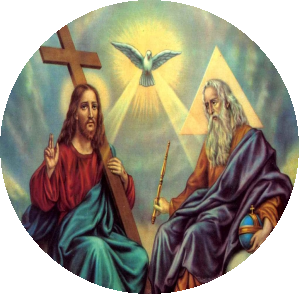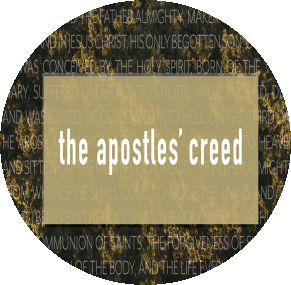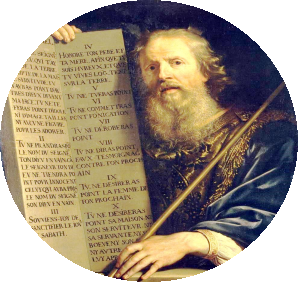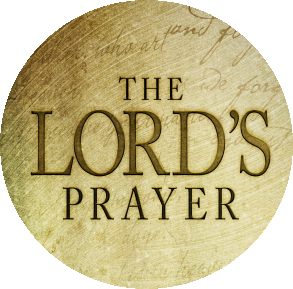God: The Trinity

The doctrine of the Trinity is foundational to the Christian faith. It is crucial for properly understanding what God is like, how he relates to us, and how we should relate to him. But it also raises many difficult questions. How can God be both one and three? Is the Trinity a contradiction? If Jesus is God, why do the Gospels record instances where he prayed to God?
While we cannot fully understand everything about the Trinity, it is possible to answer questions like these and come to a solid grasp of what it means for God to be three in one.
One God, Three Persons
The doctrine of the Trinity means that there is one God who eternally exists as three distinct Persons — the Father, Son, and Holy Ghost. Stated differently, God is one in essence and three in person. These definitions express three crucial truths: (1) the Father, Son, and Holy Ghost are distinct Persons, (2) each Person is fully God, (3) there is only one God.
The Father, Son, and Holy Spirit are distinct Persons.
The Bible speaks of the Father as God in Philippians 1:2, when it says, “Grace be unto you, and peace from God our Father”
The Bible speaks of Jesus as God in Titus 2:13, when it says, “Looking for the blessed hope and coming of the glory of the great God and our Saviour Jesus Christ”
And the Bible speaks of the Holy Ghost as God, in Acts 5:3–4 when Peter our first, says, "Ananias, why hath Satan tempted thy heart, that thou shouldst lie to the Holy Ghost, and by fraud keep part of the price of the land? Whilst it remained, did it not remain to thee? and after it was sold, was it not in thy power? Why hast thou conceived this thing in thy heart? Thou hast not lied to men, but to God."
Are these just three different ways of looking at God, or simply ways of referring to three different roles that God plays? The answer must be no, because the Bible also indicates that the Father, Son, and Holy Ghost are distinct Persons.
For example, since the Father sent the Son into the world (John 17:18), he cannot be the same person as the Son. Likewise, after the Son returned to the Father (John 16:28), the Father and the Son sent the Holy Ghost into the world (John 14:26; Acts 2:33). Therefore, the Holy Ghost must be distinct from the Father and the Son.
In the baptism of Jesus, we see the Father speaking from heaven and the Spirit descending from heaven in the form of a dove as Jesus comes out of the water (Mark 1:10–11). John 1:1 affirms that Jesus is God and, at the same time, that he was “with God,” thereby indicating that Jesus is a distinct Person from God the Father. And in John 16:13–15 we read, "But when he, the Spirit of truth, is come, he will teach you all truth. For he shall not speak of himself; but what things soever he shall hear, he shall speak; and the things that are to come, he shall shew you. He shall glorify me, (that is Jesus); because he shall receive of mine, and shall shew it to you. All things whatsoever the Father hath, are mine. Therefore I said, that he shall receive of mine, and shew it to you."
And so we see that although there is a close unity between the three persons, the Holy Ghost is also distinct from the Father and the Son.
The fact that the Father, Son, and Holy Ghost are distinct Persons means, in other words, that the Father is not the Son, the Son is not the Holy Ghost, and the Holy Ghost is not the Father. Jesus is God, but he is not the Father or the Holy Ghost. The Holy Ghost is God, but he is not the Son or the Father. They are different Persons, not three different ways of looking at God.
The personhood of each member of the Trinity means that each Person has a distinct center of consciousness. Thus, they relate to each other personally — the Father regards himself as “I” while he regards the Son and Holy Ghost as “you.” Likewise, the Son regards himself as “I,” but the Father and the Holy Ghost as “you.”
Often it is objected, “If Jesus is God, then he must have prayed to himself while he was on earth.” But the answer to this objection lies in simply applying what we have already seen. While Jesus and the Father are both God, they are different Persons. Thus, Jesus prayed to God the Father without praying to himself. In fact, it is precisely the continuing dialogue between the Father and the Son that furnishes the best evidence that they are distinct Persons with distinct centers of consciousness.
Matthew 3:17
God the Father says, This is MY beloved Son, in whom I am well pleased.
Matthew 17:5
And as he, (Jesus), was yet speaking, behold a bright cloud overshadowed them. And lo, a voice out of the cloud, saying: This is MY beloved Son, in whom I am well pleased: hear ye HIM.
John 5:19
Then Jesus answered, and said to them: Amen, amen, I say unto you, the Son cannot do any thing of himself, but what he seeth the Father doing: for what things soever he doth, these the Son also doth in like manner.
John 11:41–42
They took therefore the stone away. And Jesus lifting up his eyes said: Father, I give thee thanks that thou hast heard me. And I knew that thou hearest me always; but because of the people who stand about have I said it, that they may believe that thou hast sent me.
John 17:1
These things Jesus spoke, and lifting up his eyes to heaven, he said: Father, the hour is come, glorify thy Son, that thy Son may glorify thee.
Sometimes the Personhood of the Father and Son is appreciated, but the Personhood of the Holy Ghost is neglected. Sometimes the Holy Ghost is treated more like a “force” than a Person. But the Holy Ghost is not an “it,” but a “he” (John 14:26; 16:7–15; Acts 8:16). The fact that the Holy Ghost is a Person, not an impersonal force (like gravity), is also shown by the fact that he speaks (Hebrews 3:7), he reasons (Acts 15:28), he thinks and understands (1 Corinthians 2:10–11), he wills (1 Corinthians 12:11), he feels (Ephesians 4:30), and he gives personal fellowship (2 Corinthians 13:14). These are all qualities of personhood.
In addition to these texts, the others we mentioned above make clear that the Personhood of the Holy Ghost is distinct from the Personhood of the Son and the Father. They are three real persons, not three roles God plays.
Another serious error people have made is to think that the Father became the Son, who then became the Holy Spirit. Contrary to this, the passages we have seen imply that God always was and always will be three Persons. There was never a time when one of the Persons of the Godhead did not exist. They are all eternal.
While the three members of the Trinity are distinct, this does not mean that any is inferior to the other. Instead, they are all identical in attributes. They are equal in power, love, mercy, justice, holiness, knowledge, and all other qualities.
Each Person is fully God. If God is three Persons, does this mean that each Person is “one third” of God? Does the Trinity mean that God is divided into three parts?
The doctrine of the Trinity does not divide God into three parts. The Bible is clear that all three Persons are each one-hundred-percent God. The Father, Son, and Holy Ghost are each fully God. For example, Colossians 2:9 says of Christ, "For in him dwelleth all the fulness of the Godhead corporeally or bodily;". We should not think of God as a “pie” cut into three pieces, each piece representing a Person. This would make each Person less than fully God and thus not God at all. Rather, the being of each Person is equal to the whole being of God. The divine essence is not something that is divided between the three persons, but is fully in all three persons without being divided into “parts.”
Thus, the Son is not one-third of the being of God; he is all of the being of God. The Father is not one-third of the being of God; he is all of the being of God. And likewise with the Holy Ghost. And so when we speak of the Father, Son, and Holy Ghost together we are not speaking of any greater being than when we speak of the Father alone, the Son alone, or the Holy Ghost alone.
There is only one God. If each Person of the Trinity is distinct and yet fully God, then should we conclude that there is more than one God? Obviously we cannot, for Scripture is clear that there is only one God: “There is no God else besides me? A just God and a saviour, there is none besides me. Be converted to me, and you shall be saved, all ye ends of the earth: for I am God, and there is no other.” (Isaiah 45:21–22)
Having seen that the Father, the Son, and the Holy Ghost are distinct Persons, that they are each fully God, and that there is nonetheless only one God, we must conclude that all three Persons are the same God. In other words, there is one God who exists as three distinct Persons.
If there is one passage which most clearly brings all of this together, it is Matthew 28:19: “Going therefore, teach ye all nations; baptizing them in the name of the Father, and of the Son, and of the Holy Ghost.” First, notice that the Father, Son, and Holy Spirit are distinguished as distinct Persons. We baptize into the name of the Father and the Son and the Holy Spirit. Second, notice that each Person must be deity because they are all placed on the same level. In fact, would Jesus have us baptize in the name of a mere creature? Surely not. Therefore each of the Persons into whose name we are to be baptized must be deity. Third, notice that although the three divine Persons are distinct, we are baptized into their name (singular), not names (plural). The three Persons are distinct, yet only constitute one name. This can only be if they share one essence.
The Apostles Creed
The Apostles’ creed is the oldest statement of faith in the Catholic Church, written sometime in the second century AD. The creed defines core Christian beliefs about God, Jesus, the church, salvation, and other theological topics. (Tap Here)
The Ten Commandments
The ten laws given to Moses and Israel on Mt Sinai served several purposes.
To Israel the law revealed the nature of God.
The second purpose of the law was to reveal to each person that they could not obey God’s holy law.
The third purpose was civil. The law provided a framework for the creation of a just society. (Tap Here)
The Lord's Prayer
We approach the Lord’s Prayer with humility, saying with the first disciples, “Lord, teach us to pray.” Through prayer we journey from wherever we are on earth to the very heart of God. (Tap Here)
The Sacraments
So what is a sacrament? Many people think the sacraments are a pledge or dedication of our lives to God. However, the sacraments are actually much greater and bigger than that. They are not so much things we do for God but are actually the means God uses to grace us. The sacraments are vital practices of the Church that confesses that Jesus is God and Savior of the world. As such, it is important to understand what they are and why they are important. (Tap Here)
Precepts of the Church
In the Catholic Church, the Precepts of the Church, sometimes called Commandments of the Church, are certain laws considered binding on the faithful. As usually understood, they are moral and ecclesiastical, broad in character and limited in number. In modern times there are five. These specifically Catholic commandments are additional to the Ten Commandments. (Tap Here)
Bible Courses
Lamp and Light Bible Study is not a ‘theological’ study but a ‘life application’ study.
Our in house Priest will show that every single book of the Bible is interesting and has a message for us today. It deals with key aspects of the Christian life and speaks more to the heart than to the head.(Tap Here)














